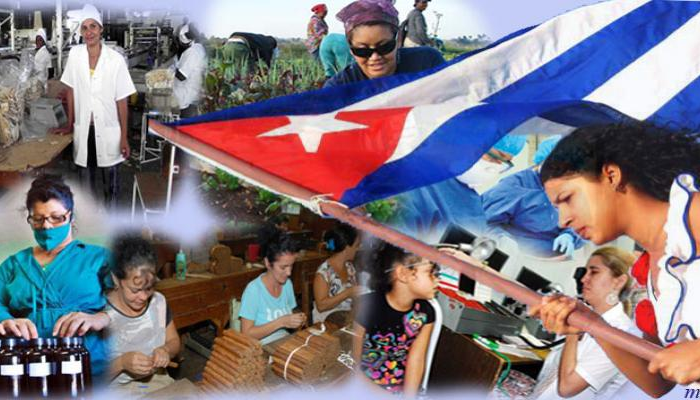
Cuban women. File image/MC
By Roberto Morejón
The participation of women in Cuba's parliamentary life highlights the significant role played in the nation, even though progress still needs to be made, especially when it comes to sharing household chores with their partners.
Cuba celebrates International Women's Day with a candidacy for deputies that is a true reflection of its diverse society, in which women stand out.
Among the 470 candidates for deputies to the National Assembly of People's Power that will be put to the vote in the elections of the coming 26th, corresponding to the tenth legislature, there are women, who represent more than 54%.
Let us recall that the world average of women legislators is only 26%, according to the Inter-Parliamentary Union.
According to the source, the largest of the Antilles remains the second of the five countries with gender parity in parliament, only behind Rwanda.
This is not a simple numerical exercise but a reflection of the prominence of female representatives in national life, whether as manual workers, graduates, engineers, nurses, doctors or scientists, to mention a few examples.
The latter stood out during the confrontation with the Covid-19 pandemic, which caused the country to go through crucial moments and many hospitals had to work in the red zone.
Many women scientists contributed their knowledge to the creation of vaccines against Sars-Cov-2, an achievement that allowed Cuba to deal with such a sensitive health situation with its own resources.
Characterized by their strength, integration, responsibility and confidence in the project of social justice that is being built in the midst of material hardships, mainly due to the U.S. blockade, the women of this nation are notorious for fighting against numerous obstacles.
They are seen in state entities, companies, agricultural cooperatives, universities, factories and workshops, offering their productive and social contribution, but also in the care of children and the elderly, in a country with an aging population of more than 21%.
There is still a need for greater incorporation of their partners in the demands of household chores, to enable greater involvement of female partners in daily problems, institutions and in the fulfillment of other duties.

